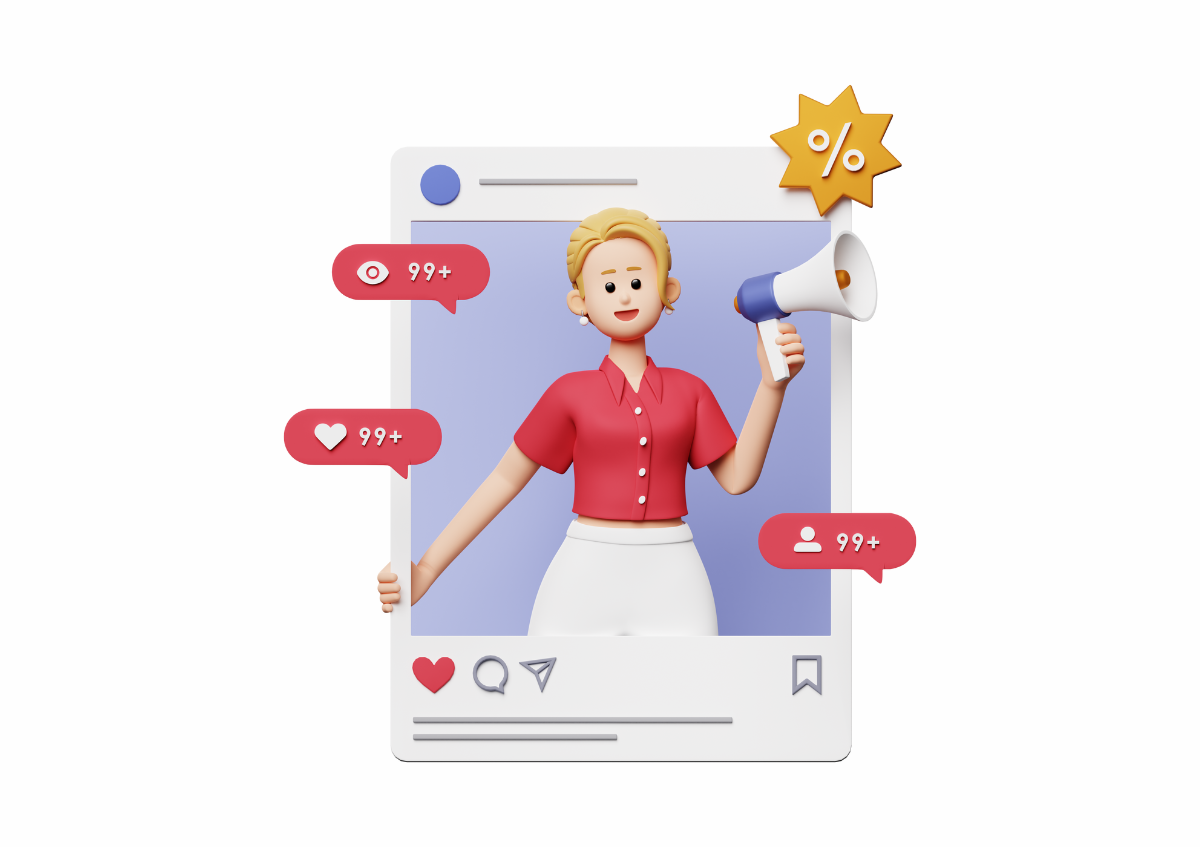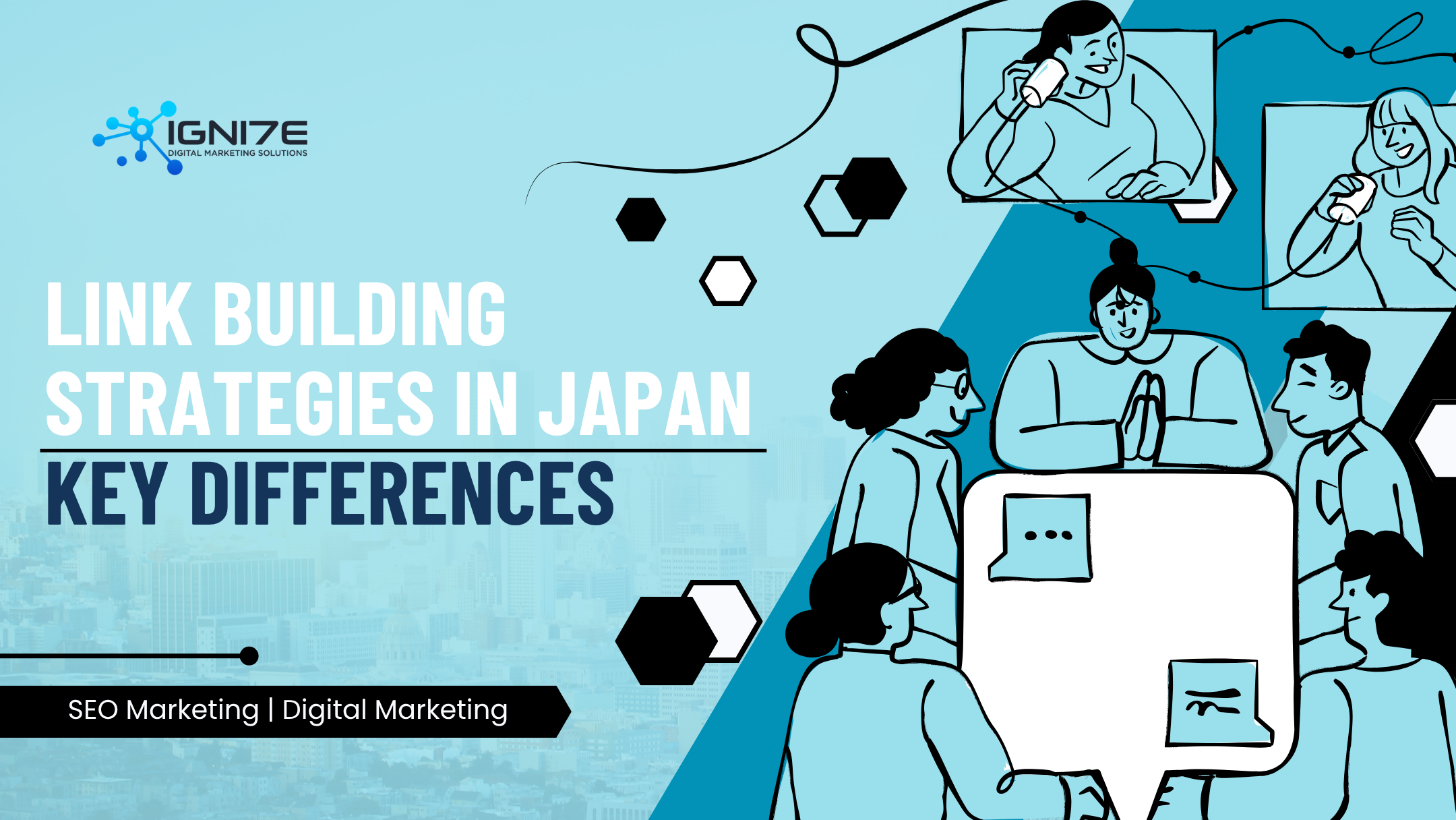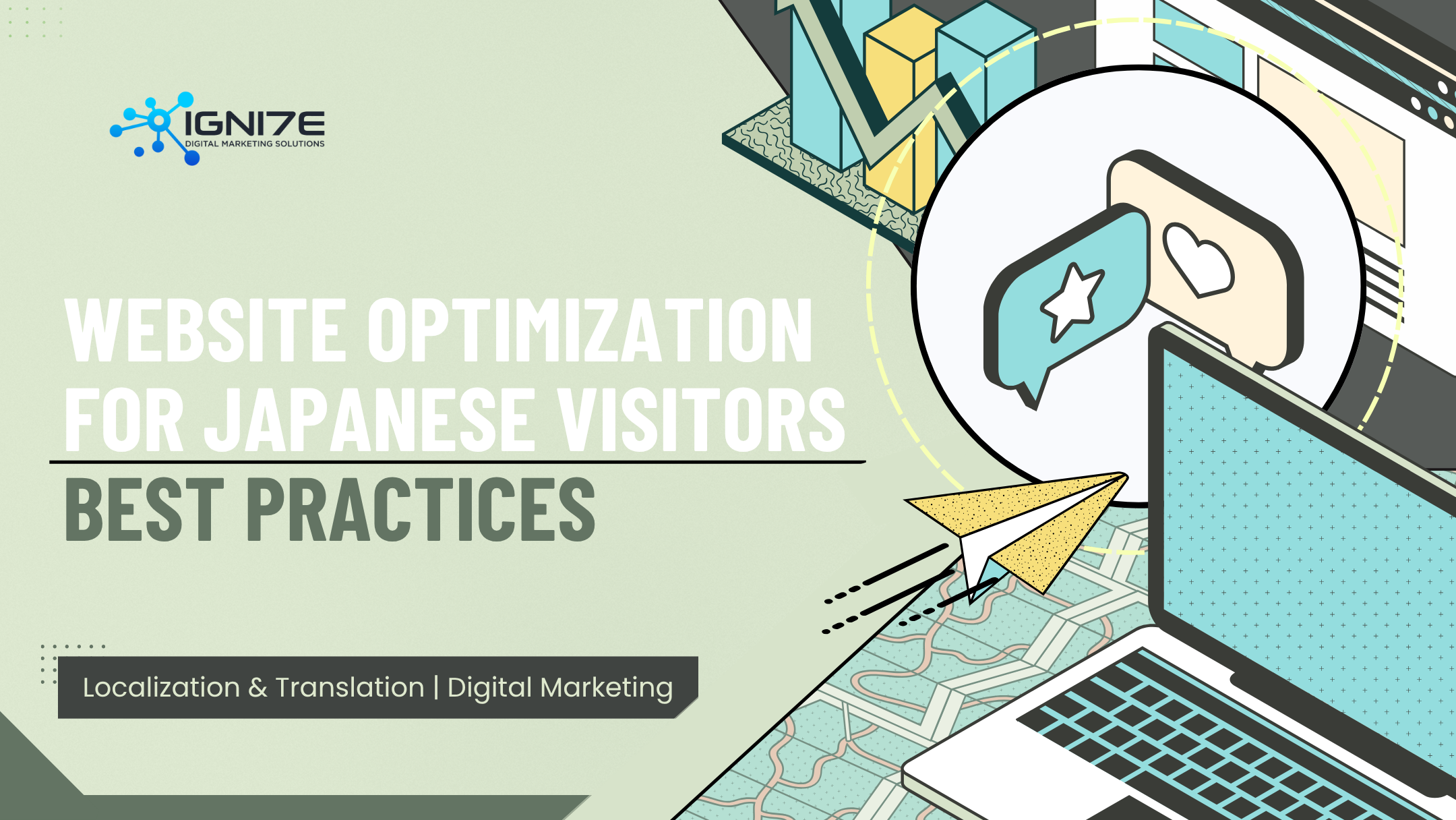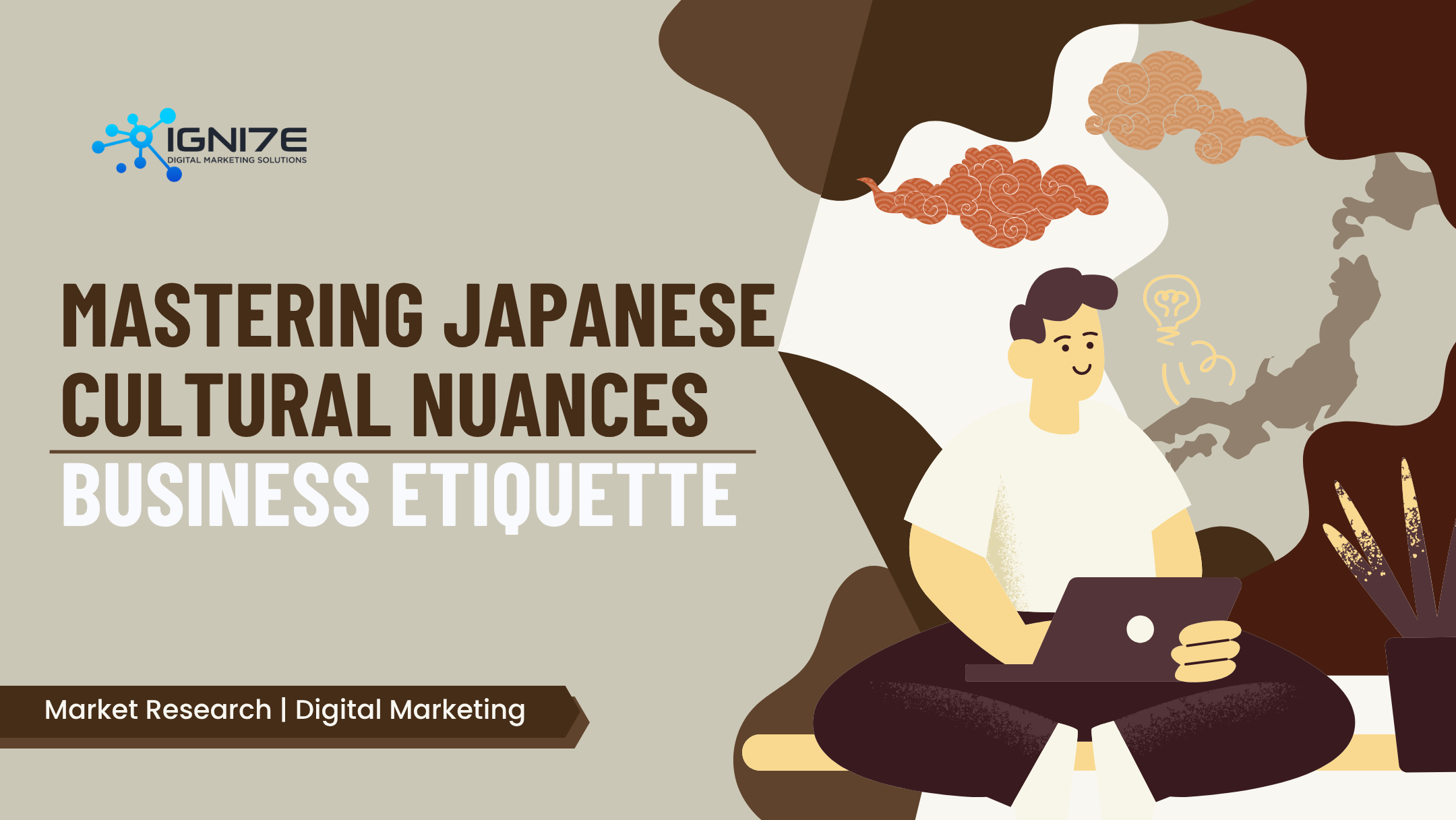Méthodes de télémarketing uniques au Japon : un guide pour les entreprises étrangères

Le télémarketing peut sembler similaire au-delà des frontières, mais au Japon, il a une signification nettement différente. Plutôt que de se concentrer sur des conversions rapides, le télémarketing japonais met l'accent sur la patience, le respect et l'établissement de relations. Pour les entreprises étrangères, cela signifie ajuster non seulement le script de vente, mais également le ton, le calendrier et même les numéros de téléphone utilisés. Ce guide explore ce qui rend le télémarketing unique au Japon, comment les nuances culturelles influencent la sensibilisation et les principaux facteurs à prendre en compte lors de la sélection d'un partenaire local. Que vous planifiiez votre première campagne ou que vous optimisiez une stratégie existante, la compréhension de ces différences vous aidera à établir des liens plus solides avec les clients japonais.
Comprendre le paysage japonais du télémarketing

Le télémarketing au Japon fonctionne dans un contexte culturel et commercial unique. Le succès dépend moins d'une vente agressive que d'une communication respectueuse et personnalisée qui renforce la confiance et la crédibilité. Le marché reste important, les dépenses publicitaires devant atteindre 0,67 milliard de dollars en 2024, mais elles devraient diminuer progressivement dans les années à venir.
Les appels entrants sont généralement axés sur le service client et l'assistance, tandis que les appels sortants sont utilisés pour les ventes, les enquêtes et la génération de prospects. Bien que les fonctions soient similaires à celles d'autres pays, l'approche du Japon est façonnée par des normes culturelles qui mettent l'accent sur la politesse, l'attention et les relations à long terme. Pour les entreprises étrangères, il est essentiel de s'adapter à ces attentes pour attirer efficacement les consommateurs japonais.
Pourquoi le télémarketing fonctionne différemment au Japon

Le télémarketing au Japon reflète la culture du pays axée sur la confiance et les relations. Contrairement aux États-Unis, où les appels commerciaux visent souvent à obtenir des conversions rapides avec des arguments convaincants, le télémarketing japonais est plus lent, plus délibéré et centré sur le renforcement de la crédibilité. Un appel réussi est moins une question de résultats immédiats que de créer les bases d'une relation à long terme.
La confiance et l'établissement de relations passent avant tout
Au Japon, la confiance n'est pas seulement importante ; c'est la condition sine qua non pour faire des affaires. Les consommateurs et les entreprises prennent rarement des décisions d'achat sur la base d'un seul appel. Ils s'attendent plutôt à une cohérence dans chaque interaction, de la façon dont l'appel est introduit à la manière dont la communication de suivi est gérée. Une présentation précipitée ou des affirmations exagérées éroderont rapidement la crédibilité.
Aux États-Unis, les télévendeurs peuvent parfois réussir en proposant des offres limitées dans le temps ou en mettant en avant les économies de coûts. Les acheteurs japonais considèrent toutefois ces tactiques comme insistantes ou peu sincères. Les entreprises étrangères doivent être prêtes à démontrer des antécédents clairs et fiables et à se positionner comme des partenaires fiables plutôt que comme des vendeurs à court terme. Cela signifie souvent que les campagnes de télémarketing au Japon nécessitent plus de contacts, de patience et une gestion minutieuse des relations.
Communication indirecte et polie
L'étiquette commerciale japonaise met l'accent sur la subtilité et le respect. Les appels commencent généralement par des salutations formelles, telles que »Osewa en natte orimasu» (merci pour votre soutien continu), qui reconnaît la relation, même s'il s'agit du premier contact. Ces salutations standard ont ouvert la voie à un échange respectueux.
Aux États-Unis, les télévendeurs entrent souvent directement dans leur argumentaire, en s'efforçant d'attirer rapidement l'attention. Au Japon, cela serait perçu comme grossier ou trop agressif. Les télévendeurs sont plutôt tenus de parler modestement, d'éviter de les interrompre et de permettre des pauses dans la conversation. Même les refus sont indirects ; des phrases comme « Kento shimasu » (« Je vais y réfléchir ») sont des moyens polis de refuser. Il est essentiel de comprendre ces signaux ; pousser plus fort après une telle réponse peut définitivement fermer la porte à un engagement futur.
Collectivisme et harmonie de groupe
La culture japonaise donne la priorité à l'harmonie (« wa ») et à la prise de décisions en groupe. Même une personne de haut niveau peut être réticente à s'engager sur le champ. Au lieu de cela, les propositions sont discutées en interne et un consensus est établi avant que les décisions ne soient prises. Pour les télévendeurs, cela signifie que la patience est essentielle : votre appel n'est souvent que la première étape d'un long processus d'approbation.
En revanche, les entreprises américaines sont plus habituées à ce que les particuliers prennent des décisions d'achat indépendantes. Aux États-Unis, les télévendeurs sont formés pour convaincre le principal décideur et conclure la vente rapidement. Au Japon, votre rôle est souvent de fournir des informations qui peuvent être diffusées en interne, plutôt que d'obtenir un accord immédiat. Ce changement nécessite un état d'esprit de soutien plutôt que de pression.
Service client et »Omotenashi»
L'une des différences les plus importantes entre le Japon et les États-Unis réside dans les attentes culturelles liées à l' « omotenashi », un esprit d'hospitalité. Les consommateurs japonais attendent un service d'excellence, même lors d'appels non sollicités. Cela signifie que la politesse, le choix judicieux des mots et le respect du temps de l'autre personne ne sont pas négociables. Un appel téléphonique adressé avec chaleur et humilité peut améliorer la réputation d'une marque, tandis qu'un produit lancé de manière trop agressive peut l'endommager définitivement.
Aux États-Unis, le télémarketing récompense souvent l'affirmation de soi : plus vite vous pouvez expliquer votre offre et surmonter les objections, mieux c'est. Au Japon, cette même approche est considérée comme irrespectueuse. Les télévendeurs sont tenus d'écouter attentivement, de reconnaître les préoccupations de l'autre partie et d'y donner suite de manière attentive, parfois même au moyen d'une note de remerciement manuscrite. De telles touches peuvent sembler inutiles aux États-Unis, mais elles sont puissantes au Japon.
Le Japon et les États-Unis en un coup d'œil
Japon :
- La confiance et les relations priment sur la rapidité
- La communication est indirecte, polie et respectueuse
- Les décisions sont prises en groupe et nécessitent de la patience
- Le service client (omotenashi) est attendu à tout moment
NOUS :
- La rapidité, la persuasion et l'efficacité sont prioritaires
- La communication directe et l'assertivité sont valorisées
- Les individus décident souvent de manière indépendante
- Les attentes en matière de service client sont moindres pour les appels à froid
Pour les entreprises internationales, la leçon est claire : un script de style américain ne trouvera pas d'écho au Japon. Pour réussir, il faut ajuster le ton, le rythme et les attentes pour s'aligner sur la culture japonaise basée sur la confiance et axée sur les relations.
Le rôle des numéros de téléphone dans l'acceptation des appels

Dans la plupart des pays, le numéro affiché sur l'identification de l'appelant n'a que peu d'influence sur le fait que les gens décrochent le téléphone. Aux États-Unis, par exemple, les consommateurs évaluent en grande partie les appels en fonction du fait que le numéro semble être du spam ou s'il est bloqué par les filtres de leur fournisseur.
Au Japon, cependant, le chiffre lui-même a une forte signification. Les consommateurs japonais sont sensibles aux préfixes, aux indicatifs régionaux et à la question de savoir si un numéro semble être local ou spécial. Ces facteurs peuvent avoir une influence directe sur le fait qu'un appel soit répondu ou ignoré. Pour les entreprises qui entrent sur le marché japonais, il est essentiel de comprendre ces nuances pour atteindre des taux de connexion plus élevés et renforcer la confiance.
Pourquoi les indicatifs régionaux sont importants au Japon
Le Japon utilise des codes régionaux qui indiquent immédiatement l'endroit d'où provient un appel. Par exemple, les chiffres 03 indiquent Tokyo et les numéros 06 indiquent Osaka, deux des régions les plus fiables et les plus reconnaissables. Les appels provenant de ces numéros ont plus de chances de recevoir une réponse car ils semblent locaux et légitimes.
En revanche, les numéros 05 ou 07 sont souvent associés à des appels commerciaux ou à des régions moins connues. De nombreux consommateurs, en particulier les plus jeunes, ne décrocheront tout simplement pas le téléphone. Cela contraste avec les États-Unis, où les indicatifs régionaux avaient autrefois une signification géographique mais ont désormais peu de poids ; la portabilité mobile signifie qu'un numéro de New York peut appartenir à une personne vivant en Californie.
Pour les entreprises étrangères, cela signifie qu'investir dans le numéro régional correct n'est pas facultatif ; c'est un facteur de crédibilité. Le fait d'avoir un numéro de Tokyo ou d'Osaka peut augmenter considérablement la probabilité que les prospects répondent.
Numéros fixes et numéros mobiles
Une autre différence essentielle est la perception des lignes fixes. Au Japon, les numéros de ligne fixe sont considérés comme plus fiables car ils suggèrent une présence établie dans un bureau. Les consommateurs âgés, en particulier, sont plus susceptibles de répondre aux appels sur les lignes fixes, les considérant comme des communications professionnelles légitimes.
Les numéros de téléphone mobile, en revanche, sont moins fiables, principalement lorsqu'ils sont utilisés par des représentants commerciaux. Alors que le Japon affiche l'un des taux de pénétration de la téléphonie mobile les plus élevés au monde, les appels à froid depuis des numéros mobiles suscitent souvent des soupçons. Aux États-Unis, cette distinction n'existe pas ; qu'un appel provienne d'une ligne fixe ou d'un mobile, les gens le jugent principalement en fonction de l'identification de l'appelant ou de la reconnaissance du numéro.
Les préfixes des numéros de téléphone mobile et leur impact
Au Japon, les numéros mobiles commencent généralement par 090, 080 ou 070. Bien qu'ils soient courants, ils ne sont pas traités de la même manière. Les numéros commençant par 070, par exemple, sont souvent supposés être associés à des ventes ou à des contacts moins formels. Cela signifie qu'un télévendeur utilisant un tel numéro peut avoir du mal à gagner du terrain.
En revanche, il est peu probable que les consommateurs américains analysent les préfixes de cette manière. Ils sont plus préoccupés par la question de savoir si un appel est marqué comme « susceptible de recevoir du spam » ou s'il est lié à des appels automatisés.
Numéros gratuits et spéciaux
Les numéros gratuits (commençant par 0120 ou 0800) sont largement reconnus au Japon et souvent associés au support client. Le fait d'avoir un numéro gratuit est un gage de professionnalisme et d'accessibilité, et cela rassure les clients quant à la légitimité et à la fiabilité de l'entreprise. Pour les entreprises qui entrent sur le marché, proposer une option gratuite est un excellent moyen de réduire les obstacles aux demandes entrantes.
Les numéros spéciaux (tels que ceux utilisés pour les services gouvernementaux ou les urgences) doivent bien entendu être évités à des fins de marketing. La connaissance de ces catégories témoigne d'une compétence culturelle et permet d'éviter les erreurs susceptibles de nuire à la crédibilité de la marque.
Types de numéros de téléphone courants au Japon par rapport aux États-Unis
Pour les entreprises étrangères, l'implication est claire : au Japon, votre numéro de téléphone fait partie de votre marque. Choisir le mauvais type de numéro peut compromettre même le meilleur script de vente, tandis qu'un numéro local ou gratuit soigneusement sélectionné peut ouvrir la voie à des conversations intéressantes.
L'audience compte : les différences générationnelles en matière de télémarketing au Japon

L'efficacité du télémarketing au Japon dépend non seulement des attentes culturelles, mais également des différences générationnelles. L'âge influe de manière significative sur le fait que les gens répondent au téléphone, sur la façon dont ils perçoivent les télévendeurs et sur les styles de communication qu'ils préfèrent. Par rapport aux États-Unis, ces différences sont plus marquées au Japon, où les traditions, l'adoption des technologies et les normes sociales varient davantage d'une génération à l'autre.
Personnes âgées et baby-boomers (70 ans et plus)
Les consommateurs japonais plus âgés, y compris ceux de la génération « dankai » () d'après-guerre, sont plus susceptibles de répondre à des appels fixes et de privilégier les conversations formelles et polies. Ils réagissent positivement à des scripts structurés, à des explications claires et à un langage respectueux. La confiance est essentielle ; une fois gagnée, la fidélité peut durer des décennies.
Aux États-Unis, les baby-boomers ont également tendance à répondre aux lignes fixes, mais l'essor des appels automatisés les a rendus prudents. Ils ont souvent besoin d'être rassurés quant à la légitimité d'un appel.
La clé pour le Japon : mettre l'accent sur le respect, la fiabilité et la patience. Évitez les tactiques de vente rapides et insistantes.
Génération X (années 50-60)
Au Japon, ce groupe fait le pont entre les mondes analogique et numérique. Ils ont grandi avec la télévision et les lignes fixes, mais ont adopté les outils numériques à l'âge adulte. Ils sont sceptiques à l'égard du télémarketing et ne s'engageront que si l'appel leur semble professionnel et correspond à leurs intérêts. Beaucoup préfèrent le renforcement des médias traditionnels (courriers, brochures) pour renforcer leur crédibilité.
Aux États-Unis, la génération X est tout aussi prudente mais plus à l'aise avec les offres directes et les emplacements axés sur la commodité. Ils apprécient l'efficacité plus que la cérémonie.
L'essentiel pour le Japon : combinez les appels téléphoniques avec les documents justificatifs et évitez les allégations exagérées.
Millennials et jeunes professionnels (30-40 ans)
Les milléniaux japonais valorisent les expériences, l'éthique de marque et l'équilibre entre vie professionnelle et vie privée. Ils sont natifs du numérique, sont moins susceptibles de répondre à des appels inconnus et préfèrent communiquer via des canaux numériques fiables (tels que LINE et e-mail) après le premier contact. Le télémarketing qui met l'accent sur la durabilité ou la contribution sociale trouve un écho.
Aux États-Unis, les milléniaux accordent également la priorité au numérique, mais ils sont plus ouverts aux présentations directes si la proposition de valeur est simple et rapide.
L'essentiel pour le Japon : utilisez le téléphone avec parcimonie comme passerelle relationnelle, puis passez rapidement aux canaux numériques.
Génération Z (adolescents de 20 ans)
La génération Z japonaise a grandi dans un environnement entièrement numérique et axé sur le mobile. Ils répondent rarement aux appels provenant de numéros inconnus et peuvent considérer le démarchage comme une intrusion. Ils s'attendent plutôt à une communication interactive, visuelle et axée sur les réseaux sociaux. Pour ce groupe, le télémarketing n'est efficace que s'il est associé à une preuve sociale (influenceurs, avis) et à un suivi numérique.
Aux États-Unis, la génération Z a des habitudes similaires, mais elle est un peu plus habituée aux appels promotionnels des opérateurs de téléphonie mobile, des banques ou des services technologiques.
L'essentiel pour le Japon : évitez de vous fier au téléphone comme canal principal ; utilisez-le uniquement une fois que votre crédibilité est établie en ligne.
Génération Alpha (enfants-adolescents de moins de 15 ans)
Bien qu'elle ne soit pas encore la cible principale du télémarketing, Alpha Generation au Japon grandit avec des applications interactives, des salles de classe numériques et des appareils partagés par la famille. Toute action de sensibilisation future doit passer par les parents, qui attendent eux-mêmes de la sécurité, de l'éducation et de la transparence.
La tendance aux États-Unis est similaire, bien que les Alphas américains soient exposés plus tôt à des publicités numériques personnalisées.
La clé pour le Japon : mettre l'accent sur l'engagement des parents, et non sur le télémarketing direct.
Tableau comparatif : Japon et États-Unis par génération
Meilleures pratiques permettant aux entreprises étrangères de s'adapter au télémarketing japonais

Instaurer la confiance, utiliser des stratégies efficaces et utiliser des techniques psychologiques sont essentiels pour engager avec succès les consommateurs japonais. Cette section examine les principales pratiques des entreprises étrangères, en fournissant des informations sur l'établissement de liens de confiance avec les clients japonais, la compréhension des stratégies locales de télémarketing et l'application de techniques éprouvées pour améliorer les efforts de sensibilisation. En adoptant ces pratiques, les entreprises peuvent améliorer considérablement leur efficacité et entretenir des relations positives sur le marché japonais.
Instaurer la confiance des consommateurs japonais
Au Japon, l'établissement de la confiance est primordial pour toute relation commerciale, en particulier dans le domaine du télémarketing. Les consommateurs japonais accordent une grande importance à l'engagement à long terme et à la transparence. Pour interagir efficacement avec eux, il est essentiel de créer une présence en ligne localisée. Cela implique de traduire votre site Web en japonais et d'adapter son contenu aux sensibilités locales.
L'utilisation de plateformes de réseaux sociaux populaires au Japon, telles que Line et X, peut renforcer vos efforts de renforcement de la confiance. Collaborer avec des influenceurs locaux ou des blogueurs dont la crédibilité est établie peut aider à combler le fossé entre votre entreprise et des clients japonais potentiels. Pour ce faire, une communication transparente est essentielle. Expliquez clairement la proposition de valeur de vos produits ou services et assurez-vous que votre message est simple et honnête.
Instaurer la confiance passe également par la démonstration d'un engagement envers le marché japonais. La mise à jour régulière de votre site Web japonais avec un contenu pertinent et le dialogue avec les clients locaux via les réseaux sociaux permettent d'établir une relation à long terme. En répondant rapidement aux préoccupations des clients et en manifestant un véritable intérêt pour leurs besoins, vous pouvez renforcer votre réputation de partenaire commercial digne de confiance. N'oubliez pas que les consommateurs japonais préfèrent faire affaire avec des entreprises qui, selon eux, sont dévouées à leur marché et à leurs valeurs.
Chronométrage de vos appels
Au Japon, le timing est aussi important que le message lui-même. La vie professionnelle repose sur des routines très structurées, et les appels en dehors des périodes acceptables peuvent être considérés comme inconsidérés. La recherche et la pratique indiquent que l'heure optimale se situe entre 10 h et 12 h 00. Cette période survient après la pointe du matin et avant le déjeuner, lorsque les gestionnaires et les décideurs sont les plus disponibles.
- Pourquoi c'est important: Appeler au mauvais moment peut sembler envahissant. Par exemple, les heures de déjeuner (12 h à 13 h) sont sacrées dans les entreprises japonaises, et les appels téléphoniques du soir sont rarement tolérés.
- Exemple de cas: Une société SaaS étrangère avait initialement programmé les appels à 16 h 00, conformément aux meilleures pratiques américaines. Les taux de réponse étaient inférieurs à 5 %. Après le passage aux appels en fin de matinée avec un numéro de Tokyo, les taux de réponse sont passés à 18 %.
Aux États-Unis, en revanche, la fin de l'après-midi (15 h à 17 h) donne souvent les meilleurs résultats. Les dirigeants américains peuvent accepter une pause dans leurs tâches et sont prêts à faire des propositions rapides avant la fin de la journée.
Meilleures pratiques pour le Japon :
- Appelez entre 10h00 et 12h00 pour des tarifs de connexion plus élevés.
- Évitez tôt le matin, à l'heure du déjeuner et après 17 h.
- Utilisez une ligne fixe régionale (03 pour Tokyo, 06 pour Osaka) pour améliorer les chances d'enlèvement.
Meilleures pratiques pour les États-Unis :
- Ciblez les fins d'après-midi lorsque les cadres terminent leurs activités.
- Intégrez des stratégies de numérotation automatique et de volume élevé sans problèmes culturels importants.
Scénarios et comportement
Si le timing permet de répondre à votre appel, **le comportement permet de maintenir la conversation.** Le télémarketing japonais met l'accent sur la formalité, l'humilité et l'établissement de relations avant tout argument de vente directe. ** Un script doit être raffiné, respectueux et adapté à la culture, mais aussi suffisamment flexible pour s'adapter au flux de la conversation.
- Comment ouvrir: Les appels commencent souvent par un message de gratitude, comme « Osewa ni natte orimasu » (merci pour votre soutien continu), même s'il s'agit du premier contact. Cela tient compte de la relation, aussi petite soit-elle.
- Le ton compte: Parlez lentement et clairement et évitez l'argot ou les formulations trop décontractées. Les longs silences sont acceptables et ne doivent pas être précipités.
- Rapport d'abord: Les consommateurs japonais préfèrent souvent discuter de manière informelle (par exemple, poser des questions sur l'entreprise, reconnaître leur emploi du temps chargé) avant de se lancer en affaires. Cela indique que vous les respectez en tant que personnes, et pas seulement en tant que prospects.
- Ce qu'il ne faut pas faire: Promettre trop, précipiter le discours ou demander directement une décision dès le premier appel. Cela crée des soupçons et nuisent à la confiance.
Aux États-Unis, les scripts sont plus directs et plus convaincants. Un télévendeur américain typique pourrait commencer par : « Bonjour, je vous appelle pour vous faire économiser 20 % sur vos coûts informatiques. Tu as deux minutes ? » Au Japon, cette approche entraînerait probablement la fin instantanée de l'appel.
Meilleures pratiques pour le Japon :
- Utilisez un script structuré mais poli et flexible.
- Reconnaissez la hiérarchie (utilisez -sama pour les titres supérieurs).
- Concentrez-vous sur l'établissement de relations avant de parler de vente.
- Acceptez le fait que plusieurs conversations peuvent être nécessaires avant que des progrès ne soient réalisés.
Meilleures pratiques pour les États-Unis :
- Ouvrez avec une proposition de valeur solide.
- Maintenez un ton convaincant, confiant et rapide.
- Essayez de gérer les objections et de fixer rapidement une prochaine étape claire.
Etiquette de suivi
Le processus de suivi au Japon est une extension du processus de renforcement de la confiance. Cela démontre votre sérieux et votre engagement dans la relation.
- Etiquette des e-mails: Un e-mail de remerciement est attendu après un appel. Utilisez une formulation polie, récapitulez les principaux points de discussion et évitez les appels à l'action insistants.
- Notes manuscrites: Dans certains secteurs (finance, assurance, B2B à forte valeur ajoutée), une note de remerciement manuscrite a toujours du poids. Ce geste démodé peut vous aider à vous démarquer de vos concurrents.
- La patience face à la pression: La prise de décisions au Japon est lente et axée sur le consensus. Un suivi trop fréquent peut être perçu comme du harcèlement plutôt que comme de la diligence.
Aux États-Unis, le suivi est beaucoup plus transactionnel. Les e-mails le jour même ou le lendemain, les messages LinkedIn et même les rappels par SMS sont courants. La persévérance est valorisée et souvent récompensée.
Meilleures pratiques pour le Japon :
- Faites un suivi poliment en envoyant un e-mail dans un délai de 1 à 2 jours.
- Espacez les autres suivis pour éviter toute pression.
- Renforcez votre crédibilité en faisant référence aux conversations précédentes de manière réfléchie.
Meilleures pratiques pour les États-Unis :
- Effectuez un suivi dans les 24 heures.
- Utilisez des rappels multicanaux (téléphone, e-mail, LinkedIn).
- Soyez persévérant ; le nombre de points de contact n'est pas considéré comme irrespectueux.
À faire et à ne pas faire pour les entreprises étrangères au Japon
Comment choisir un service de télémarketing au Japon

Lors de la sélection d'un service de télémarketing au Japon, il est essentiel de s'assurer que le service correspond à vos objectifs commerciaux et répond à des critères spécifiques. Qu'il s'agisse de déterminer si le service répond à vos objectifs commerciaux ou d'évaluer ses mesures de sécurité et sa rentabilité, chaque facteur joue un rôle crucial dans la détermination de la solution la mieux adaptée à vos besoins. Ce guide vous expliquera les principaux aspects à prendre en compte pour prendre une décision éclairée et obtenir des résultats de télémarketing réussis sur le marché japonais.
Est-ce que cela correspond à vos objectifs commerciaux ?
Vous savez maintenant que vos objectifs en matière de télémarketing devraient être clairement définis. Un fournisseur de services doit ensuite être évalué en fonction de sa capacité à comprendre et à atteindre ces objectifs spécifiques. Par exemple, si votre objectif est de générer des ventes pour un produit de niche, recherchez un fournisseur expérimenté sur ce marché particulier. Leur capacité à adaptez leur approche à vos besoins uniques jouera un rôle déterminant dans la réussite.
En outre, évaluer la familiarité du fournisseur avec votre secteur d'activité. Les fournisseurs ayant fait leurs preuves dans votre secteur sont susceptibles de mieux comprendre les défis et les opportunités spécifiques à votre marché. Ces connaissances spécifiques à l'industrie peuvent mener à des stratégies plus efficaces et à de meilleurs résultats. Par exemple, un prestataire expérimenté dans le domaine des services financiers sera mieux équipé pour répondre aux exigences réglementaires et de conformité qu'un prestataire qui n'en a pas.
De plus, examiner l'approche du fournisseur en matière de formation et de gestion de ses télévendeurs. Un télémarketing efficace nécessite des professionnels qualifiés qui connaissent bien le produit ou le service commercialisé. Évaluez comment le fournisseur forme son équipe et s'il offre un soutien continu pour s'assurer que ses télévendeurs restent au courant de vos offres. Un service qui investit dans une formation de haute qualité et une amélioration continue est plus susceptible de correspondre à vos objectifs commerciaux et de les soutenir efficacement.
Est-ce qu'il offre un bon rapport coût-efficacité ?
Commencez par comprendre les différents modèles de tarification qu'ils proposent, tels que tarif fixe, basé sur les performances ou payant par appel. Chaque modèle a ses avantages, il est donc essentiel d'en choisir un qui correspond à votre budget et à vos objectifs commerciaux. Par exemple, des frais fixes peuvent fournir des coûts prévisibles, tandis que la tarification basée sur les performances peut aligner les coûts sur les résultats, offrant potentiellement un meilleur retour sur investissement.
Ensuite, considérez la valeur potentielle que le fournisseur de services apporte à votre entreprise. Allez au-delà du coût initial et évaluez l'impact de leurs services sur les performances globales de votre entreprise. Consultez les études de cas, les témoignages de clients et les indicateurs de performance antérieurs pour évaluer leur efficacité et leur fiabilité. Un fournisseur qui a fait ses preuves en matière de prestation de résultats peut offrir un meilleur rapport qualité-prix, même si ses frais sont plus élevés.
Enfin, soyez conscient de tout coût supplémentaire qui pourrait survenir. Il peut s'agir de frais d'installation, de frais de formation ou de frais de services supplémentaires. Assurez-vous de bien comprendre toutes les dépenses potentielles et leur adéquation avec votre budget. En évaluant minutieusement les coûts directs et indirects, vous pouvez prendre une décision éclairée et vous assurer de bénéficier de la meilleure valeur possible pour votre investissement.
Les mesures de sécurité sont-elles adéquates ?
Il est essentiel de s'assurer qu'un fournisseur de services de télémarketing dispose de mesures de sécurité robustes pour protéger les données de votre entreprise et de vos clients. Commencez par revoir leurs politiques et procédures de protection des données. Assurez-vous qu'ils utilisent des méthodes de cryptage avancées pour la transmission et le stockage des données afin de protéger les informations sensibles. Renseignez-vous sur leur conformité à la loi japonaise sur la protection des informations personnelles (APPI) et aux autres réglementations pertinentes afin de garantir qu'ils respectent les normes les plus strictes en matière de confidentialité des données.
Renseignez-vous sur leur plan de réponse aux incidents et sur la manière dont ils gèrent les violations de données potentielles. Un fournisseur fiable doit disposer d'un plan clair et éprouvé pour gérer les incidents de sécurité, comprenant des mesures immédiates pour contenir les violations, informer les parties concernées et atténuer les dommages qui en résultent. Comprendre leur approche de la gestion des incidents de sécurité vous donneront confiance en leur capacité à protéger vos données.
En outre, évaluer les mesures de sécurité physiques et numériques qu'ils utilisent. Cela inclut des contrôles d'accès sécurisés à leurs installations et systèmes, des audits de sécurité réguliers et une formation des employés sur la protection et la sécurité des données. Une stratégie de sécurité complète qui couvre à la fois les aspects technologiques et procéduraux aidera à minimiser les risques et à protéger les informations de vos clients contre les menaces potentielles.
Conclusion : pourquoi le télémarketing au Japon nécessite une approche unique

Au Japon, le télémarketing est bien plus qu'une tactique de vente ; c'est une passerelle vers la confiance, la crédibilité et des partenariats à long terme. Les entreprises qui s'adaptent aux valeurs japonaises qui accordent la priorité au client, qu'il s'agisse de communications subtiles ou de suivis attentionnés, peuvent transformer de simples appels téléphoniques en opportunités commerciales durables. En respectant les attentes culturelles et en sélectionnant avec soin un fournisseur de télémarketing, les entreprises étrangères peuvent favoriser un engagement significatif qui va au-delà des transactions. Les entreprises qui réussissent sont celles qui considèrent le télémarketing non pas comme un jeu de chiffres, mais comme une passerelle vers des relations durables sur le marché japonais.
Points clés à retenir : un succès durable du télémarketing au Japon
Au Japon, le télémarketing va au-delà des simples appels de vente : il s'agit d'une pratique façonnée par la culture, l'étiquette et la confiance. Pour les entreprises étrangères, la compréhension de ces nuances peut faire la différence entre des opportunités manquées et un succès à long terme. Vous trouverez ci-dessous les principales informations qui définissent un télémarketing efficace sur le marché japonais.
- Les relations plutôt que les gains rapides : le télémarketing japonais privilégie le renforcement de la confiance et de la crédibilité plutôt que la promotion de ventes immédiates.
- La politesse et la subtilité sont importantes : un langage respectueux, une communication indirecte et de la patience sont essentiels dans chaque interaction.
- Les numéros de téléphone influencent la perception : l'utilisation d'un numéro de ligne fixe de Tokyo (03) ou d'Osaka (06) augmente les taux de prise en charge et est un gage de crédibilité.
- Les préférences générationnelles varient : les consommateurs plus âgés préfèrent les appels formels sur les lignes fixes, tandis que les jeunes générations s'attendent à un suivi numérique via LINE, par e-mail ou sur les réseaux sociaux.
- Le timing est crucial : les appels passés entre 10 h et 12 h donnent les meilleurs résultats dans la culture d'entreprise structurée du Japon.
- Le choix du fournisseur de services a un impact sur la réussite : recherchez des partenaires de télémarketing dotés d'une expertise culturelle, de solides mesures de sécurité et d'une expérience éprouvée du secteur.
Prêt à dynamiser votre croissance au Japon ?

Pour pénétrer le marché japonais, il ne suffit pas de traduire : il faut une compréhension approfondie de la culture, de la communication et du comportement des consommateurs. Chez IGNITE, nous sommes spécialisés dans l'aide aux entreprises étrangères pour combler ces lacunes. En tant que partenaire marketing local à Osaka, notre équipe multilingue travaille à vos côtés pour :
- Commencez par des recherches approfondies sur le marché japonais et votre public cible.
- Localisez votre message pour qu'il trouve un écho auprès des clients japonais sur tous les points de contact.
- Développez vos campagnes grâce à des stratégies basées sur les données conçues pour une croissance durable.
Que vous ayez besoin d'une assistance en matière de télémarketing, de campagnes numériques ou d'une stratégie marketing complète adaptée au Japon, IGNITE est là pour vous aider à entrer en contact avec vos clients et à obtenir des résultats mesurables.
Ouvrons le Japon ensemble.
Contactez IGNITE dès aujourd'hui pour commencer votre parcours marketing au Japon.











%20for%20Success%20in%20Japan_%20Essential%20Insights.png)















